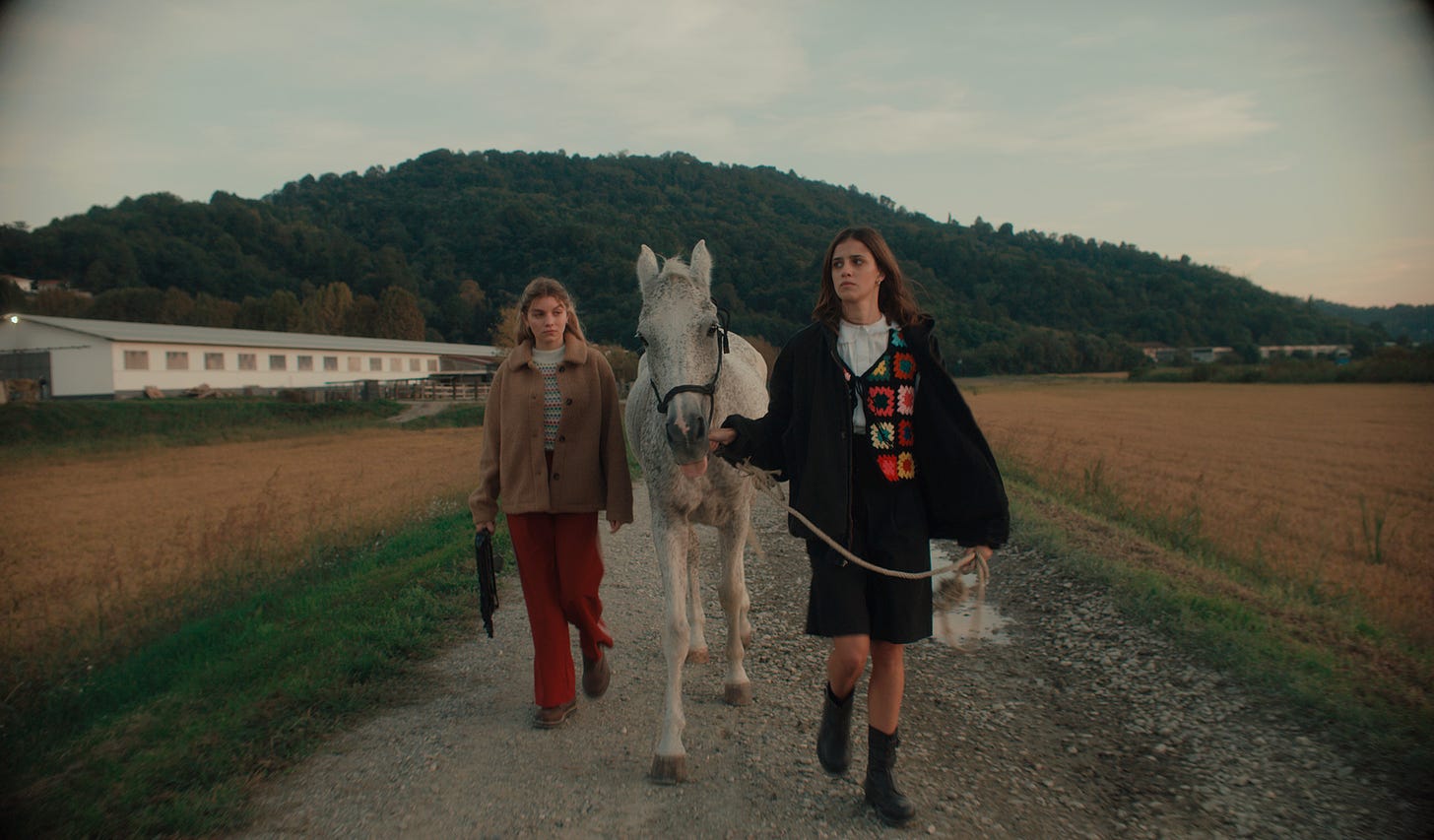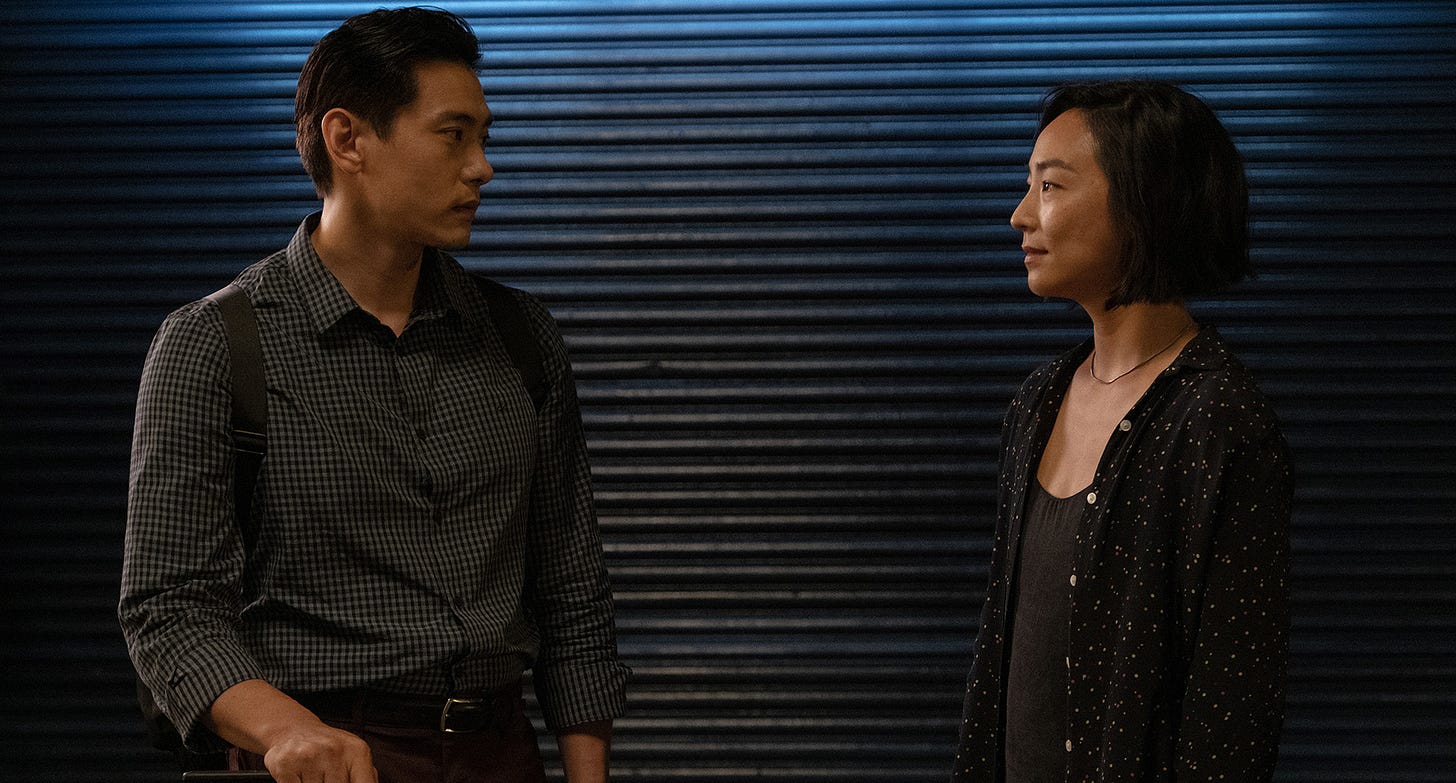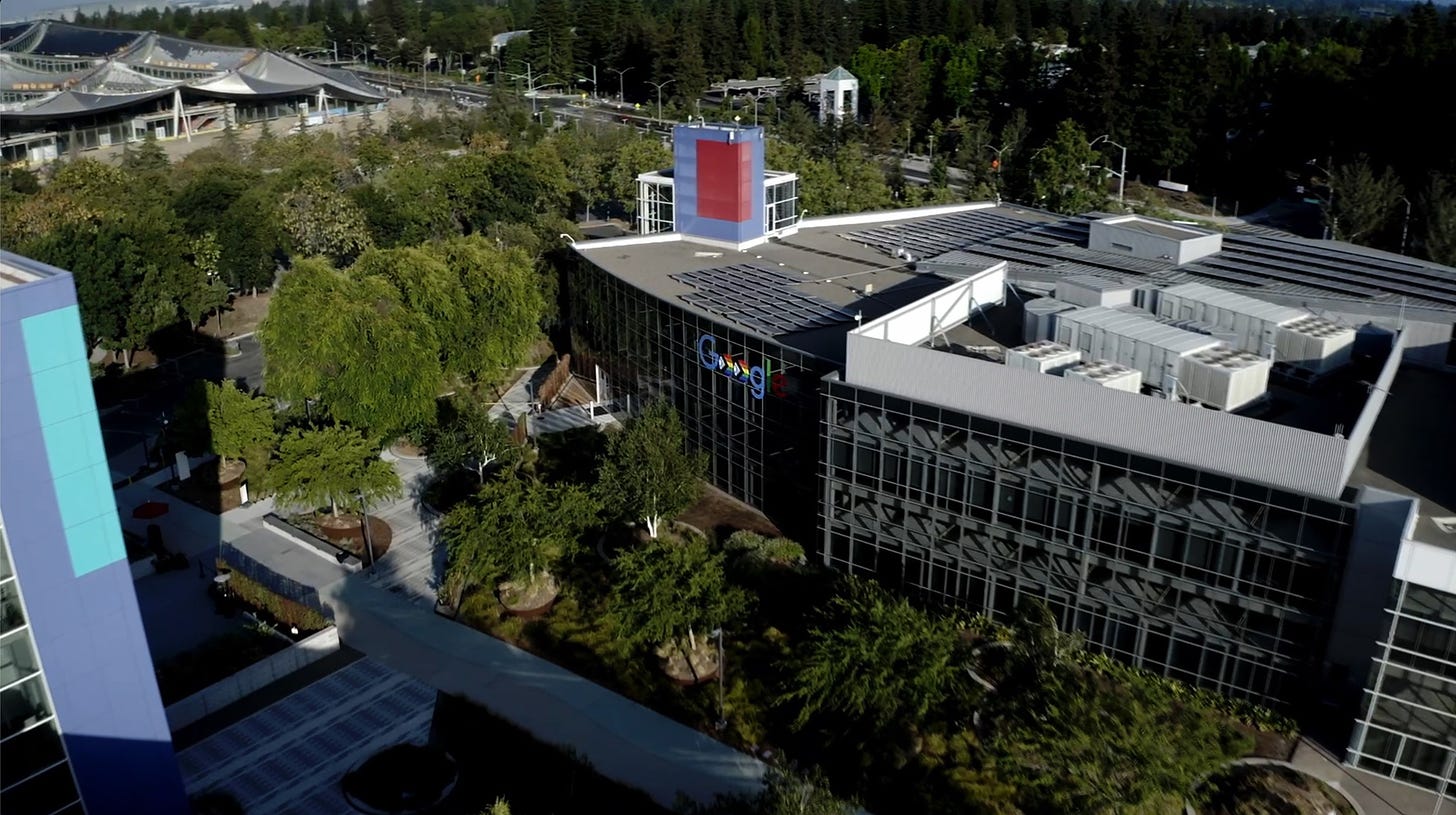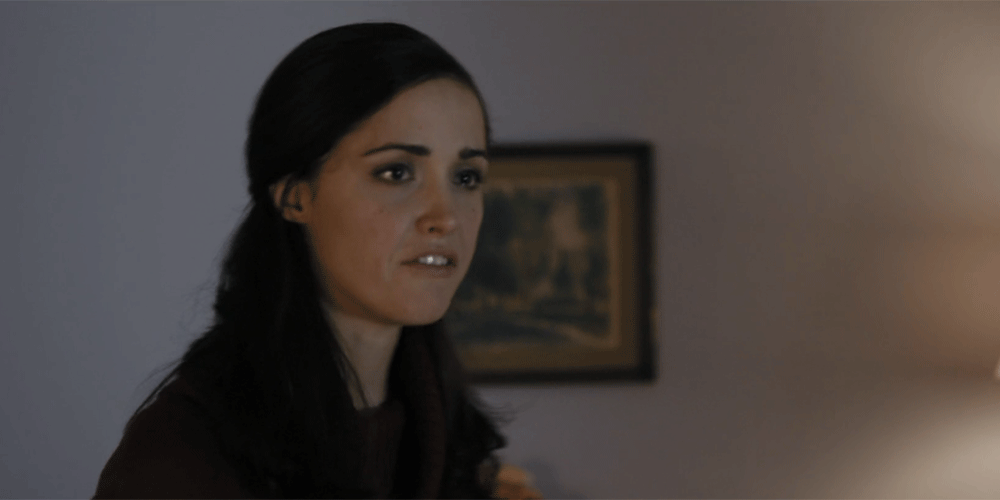What a wild week in social media. Hive and Mastodon are rarely talked about anymore due to Elon Musk not completely destroying Twitter yet. But this past week’s snafu with restrictions on how many tweets you’re allowed to view per day has really made it seem like a lot of people are sick of waiting around. It helps that more robust platforms have since been introduced of late with the kind of clout and buzz necessary to finally make a dent in the market. I honestly can’t pretend to care enough to choose more than one.
Spill seems to be doing its specific thing with the Black community. Meta’s Threads is just another data-collecting extension of Mark Zuckerberg’s empire that apparently contains insidious code that reads and connects all accounts on your device to your identity (anonymous ones too) and shares them with your followers. So, Blue Sky it is. It’s easy to use so far, doesn’t seem to have too many egregious red flags, and a majority of the #FilmTwitter world I already follow has migrated over too. And who knows? If Musk v Zuck the cage fight and/or Musk v Zuck the lawsuit ever does happen, maybe they’ll destroy each other and leave Blue Sky standing atop the rubble.
It was so much easier back when MySpace and Facebook were simply walls to throw your interests on before capitalistic greed turned the internet into a money-making machine wherein we became the product being sold.
What I Watched:
AMANDA
(now in limited release)
It seems like Wes Anderson has become the main comparison point people have been using to describe Carolina Cavalli’s AMANDA, but I’d lean more towards calling it an arthouse DUMB AND DUMBER. And, as a long-time fan of that specific Jim Carrey and Jeff Daniels vehicle, I say this with earnest affection. The moment that cemented the similarity was when Amanda (Benedetta Porcaroli) calls a local electronic shop about whether they’d buy a second-hand fan. She asks the person on the line for his name only to discover it matches the name of the store. “You’re the Emilio?” The deadpan excitement in her voice and the pause necessary to process this development as though she were speaking with an international celebrity reminded me of that innocent if deranged naivete that supplied Lloyd and Harry with such charm. Amanda has it in spades. She’s just much smarter, more biting, and much more stubborn.
Privilege allows for those traits thanks to growing up as the daughter of the owners of a pharmacy franchise. Amanda received the education that demands she pedantically point out when someone’s observation is not a “story” despite his inference that it is and the financial safety net to be socially difficult beyond belief. She never therefore had any friends and the prospect of a boyfriend was always overshadowed by her mind’s need to overthink things until the moment silently passed her by. She blames her mother (Monica Nappo’s emotionless Sofia) and her sister (Margherita Missoni’s Marina) for not understanding the plight of the little people even as she refuses to earn a living or give back to society in any way. She blames anyone and everyone around her because she can’t be the problem. It gets so bad that she wonders if the reason nothing good ever happens to her is because she’s never had anyone to listen to her describe those good things.
That’s where Rebecca (Galatéa Bellugi) comes in—the daughter of her mother’s best friend (Giovanna Mezzogiorno’s numb Viola) who might be even more messed up than her. Rebecca refuses to leave her room, afraid that people will make fun of her. It’s a psychological hang-up that may in fact be the product of remembering how her mother forced her to hang out with Amanda when they were younger because no one else wanted to. After over a decade apart, they now come together as a last-ditch effort by their parents to salvage their own sanity. It’s a rocky reunion that only advances forward because Amanda is immovably persistent when she fixates on something. Having a best friend is that thing right now and making someone who’s prone to manipulation and apathy into that friend is the perfect choice because she’s therefore able to maintain control of the relationship.
Rather than find themselves fighting over someone else like Harry and Lloyd did with Mary Swanson, however, Amanda and Rebecca find themselves in a wrestling match to prove themselves more worthy of pity and thus purpose for their otherwise self-inflicted isolation. It’s a funny, off-beat journey through the indifference of entitlement and the lethargy of boredom with two women who’ve seemingly squandered their socio-economic head starts in life due to the satirical lack of ambition and initiative wealth inevitably instills. Porcaroli is an absolute star, constantly being let down and rejected yet always prepared to put on a smile before lying about it so as not to admit defeat or show weakness. The comedy won’t appeal to everyone, and the narrative weight isn’t much deeper than that of a DUMB AND DUMBER, but its themes are clear and its quirk effective.
- 6/10
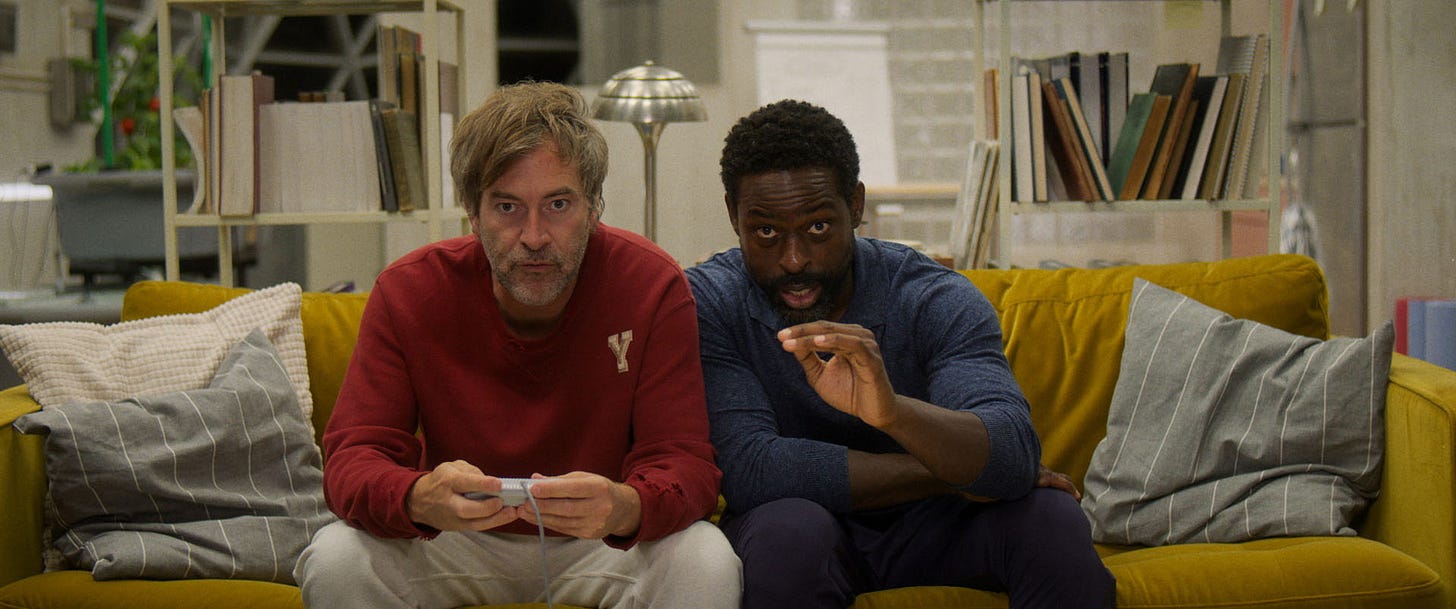
BIOSPHERE
(now in limited release and on VOD)
I watched the trailer upon completing Mel Eslyn’s directorial debut BIOSPHERE because I wasn’t exactly sure what the studio had decided to tell potential audience members considering how absurdly surprising the film’s “twists” prove. What I discovered is that it gives nothing away. So, while it’s a move I can respect (IFC previously made a mistake, in my opinion, by ruining ROGUE AGENT’s best narrative secret in its marketing materials), it also makes talking about the plot difficult. I’ll do my best to keep from any overt spoilers, but definitely stop reading now if you’re worried since the real purpose behind what Eslyn and co-writer Mark Duplass created is one of those aforementioned surprises. Because it’s one thing to “adapt” to survive as the last two humans on Earth and another to “evolve.”
It even seems unfair to talk about who Billy (Duplass) and Ray (Sterling K. Brown) are since that is also a bit of a reveal in context with the end of the world and why they have this biosphere at their disposal and survived the past few years (the total number is left vague). Just know that their opening dialogue about the Mario Bros. is apt as far as who they are together. Childhood friends and self-proclaimed “brothers from another mother,” these two have kept close throughout the years right up until this extinction point. Billy has always been the front-facing member of the pair (Mario) while Ray provided the “secret sauce” in the shadows (Luigi). Does that mean Billy was smart enough to know his limitations? Or that Ray had been using him as a puppet to advance his own ideas? Maybe it’s a mix of both.
Regardless, the film opens on a potential catastrophe via the death of the last female fish in their self-sustaining pond. It should spell disaster as far as giving them a protein source in the future and Billy takes the news as expected: a panic attack. Ray, ever the optimist, believes they shouldn’t worry yet. He has faith in his scientific acumen to come up with a solution and fate appears to grant him one too—albeit through a miracle that he has no control over. Those who know a few things about certain fish and aquatic creatures can probably guess what this development is, but even they probably wouldn’t jump to the conclusion that the same “miracle” might happen to the men trapped in this dome too. Add the sudden appearance of a green dot in the otherwise black, atmosphere-less sky and you can’t help but wonder what’s going on. Is this the death knell or a new beginning?
I think BIOSPHERE is an intriguing if not genuinely good film. I think the themes it touches on as far as survival and hope and adaptation are sound with Duplass and Brown giving their all to captivate and endear themselves to us along the journey. I do wonder, however, how fleshed out some of those ideas prove considering the construct presenting them is played as more gag than metaphor. That the issues are weighed and absorbed by two cisgender males also feels a bit short-sighted since the fluidity of gender norms and toxic masculinity on display inherently demand we move past the binary that ultimately becomes a crucial hang-up to progress on-screen. The film’s success is thus more in line with supplying a catalyst for conversation than anything concretely valuable to add to that dialogue, so I’m very much looking forward to reading what non-cisgender viewers/critics have to say. That alone does make what is probably a misguided artwork worthwhile.
- 6/10
PAST LIVES
(now in theaters)
Despite what the movies would have you believe—especially the romantic variety—fate is just as quick to punch you in the gut as it is to sweep you off your feet. It’s why Arthur (John Magaro) is such a fantastic character. He understands what “should” happen in a situation that demands he be the obstacle to his wife’s happiness. That his own joy should be expendable in order for the audience to leave with a smile on their face knowing true love prevailed.
So, when he starts laughing in bed at how perfect and scripted and interesting the idea of his wife meeting up with her childhood sweetheart after twenty plus years apart is, you understand his emotional instability. Because we’ve been conditioned to gravitate towards the spark of kismet rather than the sigh of convenience. From an outsider's perspective, Arthur doesn’t stand a chance.
Except writer/director Celine Song didn’t create a fantasy. Past Lives is sexy and funny and tender along its seemingly familiar path, but it never ignores the mundane truth that destiny, more often than not, keeps people apart. Reality isn’t a fairy tale. It doesn’t allow us to press pause on our life's ambitions to travel halfway around the world for someone we used to know.
Maybe Nora (Greta Lee) and Hae Sung (Teo Yoo) do belong together. Maybe if her family didn’t decide to immigrate to Canada, they would have been inseparable. Maybe they still might … if the timing is right. If the stars align. If the chance to see what might have been and could still be proves that they’re each the person they remembered in youth and not merely a faded facsimile that can’t match the nostalgia. Because they did love each other in whatever way twelve-year-olds can. And they do long to experience that feeling again.
Song expertly structures her film in a way that dares us to presume where it’s going. That’s why she has us meet her three characters sitting on the other side of the bar with the disembodied voices of our stand-ins jokingly guessing what their deal is. Are Nora and Arthur a couple meeting with her brother? Are Nora and Hae Sung together with Arthur playing the third wheel? She’s sitting closer to Arthur but he doesn’t seem to be in the conversation. Is that because he’s not? Because he’s being cut out of it? Because he’s a complete stranger? Who knows?
That’s why we must rewind twenty-four years into the past to begin to understand the complexity of their trio. We meet Nora and Hae Sung properly in much younger bodies as they compete at school and laugh with carefree abandon before parting ways to perhaps never see each other again. Until a chance lark challenges fate.
Where things go next is an honest depiction of lust and longing as well as the unavoidable truth that we can’t get everything we want all at once. Will we regret that which falls by the wayside? Sure. But as Nora’s mother says early on, leaving something behind also means gaining something else. A young Hae Sung won’t comprehend the nuance of that statement. Twenty-year old Hae Sung might not either. The hope is therefore that thirty-something Hae Sung might.
The same goes for Nora despite regret not being quite as prominent in her life. Whereas Hae Sung longs for the love he felt in adolescence, Nora is driven by the pursuit of success in her career. He’s a good Korean boy. She’s the daughter of liberal artists willing to break free from tradition to pursue new joys regardless of them being born out of rejecting the present safety of comfort. So, maybe their longing is for what they represent more than who they are.
Past Lives' best moments are the awkward silences that never feel as long as they are. That’s how good Lee and Yoo are. How good their chemistry proves since those silences aren’t a product of having nothing to say, but holding back what they wish they would. What good is Hae Sung telling Nora he’ll miss her way back in middle school, though? What good is pining over a perpetually stillborn relationship when their focus is firmly affixed to other imperatives that demand it stay that way?
The time is simply never right to speak up because making those feelings heard risks destroying bigger dreams for a fantasy that might never come true. That doesn’t mean they can just walk away. Or that they can avoid running to the edge of that cliff hoping the other might finally jump before something else shakes them awake. Sometimes the love you never shared and lose hurts most because it exists unblemished in your imagination. And the love you do have is left selflessly consoling you from the resulting irrational yet debilitating pain.
- 9/10
THE YOUTUBE EFFECT
(now in limited release)
Regardless of how desperate Google and other Big Tech companies are to deflect from their complicity in helping ignite our society’s devolution since the widespread proliferation and commodification of the internet and social media, they cannot in good conscience deny the fact that most alt-right radicals and terrorists admit their rhetoric and hate was learned from platforms like YouTube. It’s undeniable, and directly traceable to “related content” algorithms that were intentionally (and successfully) built to ensure raising shareholder profits was the main goal since doing so is every publicly traded corporation’s legal obligation. That’s how an ingenious startup sold for 1.65 billion dollars after one year of operation (to a chorus of laughter, no less) can haul in 50+ billion dollars a year in revenue just over fifteen years later. That trajectory is only possible with a clear, conscious manipulation of a knowingly prone-to-addiction consumer-base.
THE YOUTUBE EFFECT director Alex Winter depicts this linear evolution through interviews with YouTube co-founder Steve Chen, former YouTube CEO Susan Wojcicki, content creators like Anthony Padilla (Smosh) and Natalie Wynn (ContraPoints), admitted victims of the algorithm like Caleb Cain, and a handful of talking head experts on tech and ethics. Every step forward is introduced by an interstitial labeled with the year, annual views, and annual profits to show just how exponential the growth increases with the installation of the algorithm and subsequent political and social unrest. What started as a forum for goofy videos soon shifted to a venue for parasocial relationships. Both Google (who purchased YouTube in 2006) and vloggers recognized the patterns of its use and profitability, leveraging that knowledge to build and exploit new infrastructure for even bigger gains—all while pretending a robust attempt to curb misinformation, abuse, and indoctrination somehow absolved them from that which still snuck through.
It’s a nightmarish descent. And while this particular film focuses on YouTube (with good reason considering it’s the second most-visited site behind Google itself), it doesn’t operate in a vacuum. Facebook started earlier (with Twitter following in 2006), but its crazy (and deceitful) pivot to “video” that helped expand its reach was obviously a byproduct of YouTube’s success. While it’s one thing to make random teenagers into millionaires for doing stupid things, however, it’s another to let fringe thinkers steeped in hate speech hijack that conduit towards celebrity and brainwash huge swaths of the public without any real threat of repercussion. Suddenly a site that allowed you to see yourself depicted on the internet or give you a voice to be seen and heard yourself became a haven for “self-help” communities operating in bad faith. We see its destruction without those actors’ involvement because Padilla’s acknowledgement (and ultimate rejection) of that shift proves the Ben Shapiros and Alex Joneses of the world conversely embraced it.
Don’t presume this film is going to change minds, though. Winter presents a well-researched and contextual timeline of facts that showcases how those who need to understand already blindly and vehemently disbelieve it. That’s why accounts like Cain’s are crucial as someone who fell prey to the psychological conditioning utilized by the alt-right before waking up. And why feel-good stories like young Ryan Kaji must be viewed from a position that doesn’t allow you to pretend his parents aren’t pulling the strings (maliciously or not) to mold their son into what they need for success. Add Brianna Wu’s insight into Gamergate death threats, Wojcicki’s unwavering party-line deflection, and more for an expansive look at how damaging technological growth on an unprecedented scale proves when put in the hands of cutthroat opportunists left to police themselves so a largely apathetic (and ignorant) government can willingly reap the benefits of letting them.
- 7/10
Cinematic F-Bombs:
This week saw ADAM (2009), THE CLOVERFIELD PARADOX (2018), THE ELECTRICAL LIFE OF LOUIS WAIN (2021), SHINE A LIGHT (2008), and SUGAR (2009) added to the archive. It’s always good to add another Martin Scorsese film to the collection since his career is prolific when it comes to the use of the f-bomb. Just a bit weird to do so with Mick Jagger via a PG-13 concert documentary. cinematicfbombs.com
New Releases This Week:
(Review links where applicable)
Opening Buffalo-area theaters 7/7/23 -
INSIDIOUS: THE RED DOOR at Dipson Flix & Capitol; AMC Maple Ridge & Market Arcade; Regal Elmwood, Transit, Galleria & Quaker
JOY RIDE at Dipson McKinley, Flix & Capitol; AMC Maple Ridge & Market Arcade; Regal Elmwood, Transit, Galleria & Quaker
NEEYAT at Regal Elmwood
(opens 7/12) MISSION: IMPOSSIBLE - DEAD RECKONING - PART ONE at Dipson Amherst, McKinley, Flix & Capitol; AMC Maple Ridge & Market Arcade; Regal Elmwood, Transit, Galleria & Quaker
Streaming from 7/7/23 -
LOS INICIADOS - Prime on 7/7
THE OUT-LAWS - Netflix on 7/7
SEASONS - Netflix on 7/7
UNKNOWN: KILLER ROBOTS - Netflix on 7/10
MR. CAR AND THE KNIGHTS TEMPLAR - Netflix on 7/12
THE JEWEL THIEF - Hulu on 7/13
Now on VOD/Digital HD -
BAD GIRL BOOGEY (7/4)
FROM BLACK (7/4)
WARHORSE ONE (7/4)
BIOSPHERE (7/7)
Thoughts are above.
GUARDIANS OF THE GALAXY: VOL. 3 (7/7)
“There's a lot of tough love on display due to the fallout of everyone being a raw nerve. They won’t all remember what was spoken, but those who must remember will. That goes for us too since this trilogy capper is as much a beginning as it is an ending.” – Full thoughts at HHYS.





